History, Memory, and the Fallen Jew
The publication of most of Yosef Hayim Yerushalmi’s lesser-known essays and smaller writings, competently edited and informatively introduced by David N. Myers and Alexander Kaye, provides an occasion to reflect more generally upon the man and his work. Yerushalmi, who passed away in 2009 at the age of 77, was a pre-eminent—and certainly most widely known—Jewish historian of his time. Enamored with the study of ruptures, crises, and fissures, he was bent on enunciating the dilemmas of “fallen Jews,” ranging from the conversos of the Iberian peninsula to Sigmund Freud and, indeed, scholars like himself. Yerushalmi was as much a sensitive product of his fractured time as he was a key expositor of its predicament.
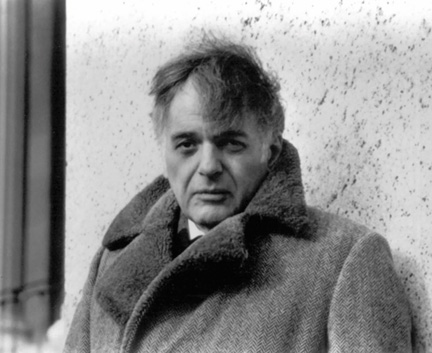
Although he resisted the postmodern winds blowing around him and possessed an erudite command of the Judaic tradition, Yerushalmi was unwilling and, more probably, unsuited to write a flowing coherent historical narrative such as the one that his beloved teacher Salo Baron had attempted. There are those who claim that Yerushalmi, always a complex, enigmatic man, simply lacked the energy and initiative to undertake such a task. It is true that apart from some important essays, he did not really follow up systematically on the history of Spanish and Portuguese Jewry and the Sephardi diaspora after his first book. Still, this is uncharitable and probably misses the main point. For Yerushalmi believed that a unified, meaningful account of the pattern of all of Jewish life was no longer possible. Baron’s monumental A Social and Religious History of the Jews was, he said, probably “the last serious attempt by a single historian to embrace the whole of Jewish history.” The time for overarching meta-narratives seemed to be over, even if, as he insisted, the search for discrete historical truths was not.
Yerushalmi thus not only famously formulated but urgently embodied the crisis of our modern constitutive belief in a fluid, disintegrative “historicity.” For this development resulted in what he took to be the irreconcilable clash between secular, myth-breaking Jewish historiography and identity-sustaining traditional collective Jewish memory. This was summed up in the title of his most famous book Zakhor: Jewish History and Jewish Memory. In that elegant little volume, based on the four Stroum lectures he delivered at the University of Washington in 1980, Yerushalmi explored the limits and possibilities in the tension between the biblical injunction to remember (zakhor) and the historiographical imperative to reconstruct profane human history. Rendering this tension explicit was, I believe, a creative act of transfiguration for Yerushalmi.
Almost from the beginning, there was something unusual, even exotic, about Yerushalmi’s persona. When Jews were Americanizing their names, his transition from Joseph (Josephy) Hyman Erushalmy to Yosef Hayim Yerushalmi emphasized alien origins. “Sad-eyed Joe,” his 1952 Yeshiva College yearbook says, “has claimed that he stemmed from such varied backgrounds as Turkey, Tagikastan, and Oxford.” Actually, he was born in the Bronx and already then his strangely intoned English—the yearbook called it “Cambridge-tinged”—was noted. (Academic wags would later say he hailed from “Bronxford.”) Perhaps this was a result of the fact that Yerushalmi’s first languages were Hebrew and Yiddish (he didn’t speak English until he was five), but it certainly added to his mystique. The yearbook entry, which is reproduced in a footnote by Myers and Kaye, erred however in predicting a future for Yerushalmi in law. He was first ordained as a rabbi at The Jewish Theological Seminary and then turned to Jewish history.
There was always something unashamedly existential, critically personal in Yerushalmi’s writings. This dimension, combined with an unfailingly elegant literary style, endowed his writings with a certain charisma, an urgency and excitement rare in academic history. Determinedly cosmopolitan, a polyglot, the issues he raised proved irresistible to many leading intellectuals of the day. His later works, Zakhor and Freud’s Moses: Judaism Terminable and Interminable, slim as they were, generated widespread discussion, including responses from Jacques Derrida, Edward Said, Amos Funkenstein, Harold Bloom, Pierre Nora, Richard Bernstein, and Pierre Vidal-Naquet, to name just a prominent few. Pierre Birnbaum ended his major study of modern Jewish intellectuals, Geography of Hope, with Yerushalmi (from whom he had borrowed the title) as an exemplar of positive Jewish and scholarly commitment, and Sylvie-Anne Goldberg published a book-length series of interviews with the historian. (The French had a particular penchant for Yerushalmi.)
All of Yerushalmi’s works, including his only full-length sustained historical monograph, the 1971 From Spanish Court to Italian Ghetto: Isaac Cardoso, A Study in Seventeenth-Century Marranism and Jewish Apologetics, probed crises of consciousness and breaks in Jewish life. The fissures and ruptures of early and later modernity framed his concerns. Yet Yerushalmi was a determinedly engagé “Jewish” historian. If today, thankfully, Jewish studies has moved out of the ghetto and many non-Jews are centrally involved in this scientific endeavor, Yerushalmi unabashedly addressed ultimate Jewish concerns of identity and commitment. While always adhering to the canons of modern scholarship and objectivity, he admitted that he had devoted himself to Jewish history “for very personal existential reasons.” Zakhor, he announced, was “part history, part confession and credo.” The “lingering suspicion that a conscious responsibility toward the living concerns of the group must result in history that is somewhat less scholarly or ‘scientific,’” he argued, was profoundly mistaken. It simply rendered the task more tangled, complex, and interesting.
It is certain that many contemporary Jewish historians write Jewish history as an expression of their post-traditional identity. As “fallen” Jews this is their surrogate faith (fallen they may be, but Jews they remain). Yet, many historians—Jewish and non-Jewish—would not accept Yerushalmi’s admonition that the “burden of building a bridge to his people remains with the historian.”
While the fissures, ruptures, and breaks of modernity underlie Yerushalmi’s quest, an additional, perhaps deeper impulse was also at work. In retrospect, his historical project throughout appears as a complex, valiant—if not always successful—attempt at Jewish reclamation. That impulse is obvious in his path-breaking examination of Marranism, that secret lingering form of Judaism practiced after the forced conversion of Spanish and Portuguese Jews to Catholicism in the late 15th century. Yerushalmi’s study focused on Isaac Cardoso, a prominent and well-placed Christian physician in 17th-century Spain who made a surprising “return” to a full Jewish life and undertook an uncompromising and bold defense of Judaism in Italy. Of Cardoso’s spirited defense, Las excelencias de los Hebreos, he asserted that, “Cardoso’s work may now also be reclaimed, to be read no longer as apologia but as the response of a great Jewish heart to a perennial hatred.”
The essays collected in The Faith of Fallen Jews reveal Yerushalmi’s understanding of both diaspora life and the ongoing nature of Jew-hatred. Exile in both the geographical sense and, more subtly, as an estrangement from collective memory informs many of these pieces. Although Yerushalmi was never simplistic or overwrought (“lachrymose” to use his teacher Baron’s famous phrase), a certain negative continuity runs through these pieces. He understood the relatively privileged, protected position of Jews within medieval structures, their alliance with and protection by political elites, and he documented their manifold cultural and intellectual achievements. Yet throughout he insisted upon the continuingly vulnerable state of diaspora life, from Spain and Portugal through modern Germany and the Shoah, and—though the differences remain glaring—even to the America of today (or at least the day before yesterday).
The Holocaust, he declared in a lively 1970 graduation address that began with an exegesis of some apocalyptic lyrics from the musical Hair, “could happen again.” In the earliest collected piece, a 1966 review of the English translation of Yitzhak Baer’s A History of the Jews in Christian Spain, Yerushalmi wrote that, despite the short-lived Golden Age, “catastrophic elements were implicit in the development of Spanish Jewry from the beginning.” Intriguingly, in his 1982 Leo Baeck Memorial Lecture, he found modern German anti-Semitism to be surprisingly close to the much earlier Spanish case, with its doctrine of the purity of blood and the notion of an inherent, biologically irremovable Jewish essence. In both cases, what inspired fear and hatred, he argued, was not so much Jewish separation as it was Jewish integration. Racist thinking arose precisely when observable differences were less visible, when outsiders were becoming insiders.
This was a strong critique of successful “assimilation.” Indeed, like Hannah Arendt (although dissenting from her unfeeling judgment of the behavior of the Jewish Councils during the Holocaust), Yerushalmi was rather harsh regarding Jewish political judgment in general. Given their essentially providential view of history and lacking any sense of profane causality, Jews were entirely unable to make reasoned political judgments. This, he argued, applied equally to medieval and modern Jewry.
Such judgments may have expressed an ideological bias, but they also produced work thankfully devoid of apologetic strains. As Yerushalmi wrote in an essay on the political history of the Jews:
I believe that I have always been secure enough to study and teach Jewish history without glossing over the imperfections of the Jews. (Why, indeed must they be perfect? The Hebrew Bible did not think them so.)
Two examples of Yerushalmi’s unapologetic approach to Jewish history must suffice. He was convinced that the records of the Inquisition regarding the Judaism of the Marranos, their beliefs and comportment, were scrupulously accurate and not to be regarded as hostile propaganda. He also anticipated current historiographical fashion by documenting the manifold modes of Jewish hostility towards Christians, especially as it was expressed in prayer, a convenient outlet for a powerless group to vent its anger.
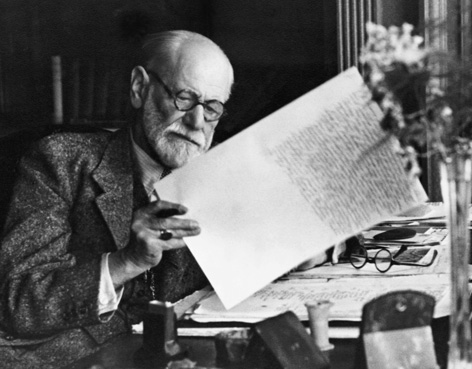
Nevertheless, it is the reclamatory impulse that stands at the center of Yerushalmi’s historical project. This was perhaps clearest in his study of Sigmund Freud. Yerushalmi argued that Freud possessed a far greater knowledge of, and familiarity with, Jewish matters than he ever admitted. His knowledge of Hebrew, Bible, and even some Talmud was a somewhat hidden but crucial dimension of Freud’s makeup. Of course, the psychoanalyst’s Jewish affiliation had never been in question, and Yerushalmi documents the many statements (some of them bordering on a kind of triumphal chauvinism) that Freud made to that effect. But he probed deeper and questioned Freud’s own self-presentation.
Here, Yerushalmi introduced a useful distinction between “culture” and “identity.” While the sources of Freud’s thought and much of his intellectual world could be traced to German culture, the Enlightenment, and scientific positivism, his sense of self, his core identity, was a different matter. Shorn of religion and traditional faith, it remained nonetheless determinedly, interminably “Jewish.” Not surprisingly, Edward Said took Yerushalmi to task for rendering Freud’s Jewishness too much of an “open-and-shut matter,” one which underplayed Freud’s openness and downplayed the master’s insistence that Moses, the founder of Jewish identity, was himself “a non-European Egyptian.” Identity, Said argued, could not “constitute or even imagine itself without that radical originary break or flaw which will not be repressed.” Yerushalmi resisted such postmodern strictures.
But this was hardly the most provocative part of Yerushalmi’s Jewish reclamation of Freud. What many found objectionable was his insistence that psychoanalysis really was a fundamentally “Jewish science.” He did this in the form of a “Monologue with Freud,” a chapter in Freud’s Moses. It was a scolding, if loving, one-sided conversation in which Yerushalmi dissented from many of Freud’s contentions in Moses and Monotheism. If the Jews had murdered Moses, he argued, it would “not have been repressed but—on the contrary—it would have been remembered and recorded, eagerly and implacably, in the most vivid detail, the quintessential and ultimate exemplum of the sin of Israel’s disobedience.”
On the basis of Freud’s repeated statement that “we are and remain Jews,” the core of Yerushalmi’s monologue was a critique of Freud’s deep reluctance to define not himself but analysis as a Jewish phenomenon. Had he had the courage to do so, this would have “marked the emergence of the full Jew within” him. Instead, Freud had internalized a debilitating and false modern distinction, one to which self-conscious Jews were (and remain) especially prey:
With all the talk of German science and French science, neither of which implied that its contents are not universally accessible or applicable, why not Jewish science, especially in the case of psychoanalysis? Why not say, with psychoanalysis in mind, “Judaeus sum, nihil humani a me alienam puto” . . . ? There was, in short, an opportunity to finally lay to rest the false and insidious dichotomy between the “parochial” and the “universal,” that canard of the Enlightenment which became and remains a major neurosis of modern Jewish intellectuals.
Both friends and enemies of psychoanalysis—most prominently the Nazis who condemned analysis as typical of the Jewish tendency to reduce humanity to depraved sexuality—continued to see things in this light, Yerushalmi went on, so why didn’t Freud admit it?
Even more provocatively, in a finger-wagging admonition to Freud, he added that:
I think that in your innermost heart you believed that psychoanalysis is itself a further, if not final, metamorphosed extension of Judaism, divested of its illusory religious forms but retaining its essential monotheistic characteristics, at least as you understood and described them. In short, I think you believed that just as you are a godless Jew, psychoanalysis is a godless Judaism.
A resurrected Freud would probably regard this as counter-transference in a reclamatory mode.
In Zakhor, Yerushalmi posited a fundamental clash between collective memory and the critical sensibility of the modern historian. Since the Bible, Jews and Judaism have indeed been absorbed with the divine meaning of history, but this was mediated by ritual and liturgy (think of the Passover haggadah, a text of particular interest to Yerushalmi), while historical thinking of the non-sacred, casual kind we moderns take for granted played virtually no role at all. “We have learned,” Yerushalmi writes, “that meaning in history, memory of the past, and the writing of history are by no means to be equated.”
Today, the salience of “collective memory” has become commonplace. But its resonance was built on more than intellectual fashion. Yerushalmi put his finger on an ongoing scholarly and existential predicament: “I live,” he declared, “within the ironic awareness that the very mode in which I delve into the Jewish past represents a decisive break with that past.” This is certainly true, but wouldn’t the same predicament apply to historians of almost all stripes? Most traditional societies rested on some kind of mythical schema of time and a sacred interpretation of life. The Jewish rupture with the past is not entirely unique.
But certainly consciousness of rupture constitutes the condition for any work of historical reclamation. In Zakhor, this is a complex balancing act. As the product of rupture, the historian is able to identify life-sustaining, necessary myths, while exposing other dangerous, destructive ones. In a 1987 essay, “Reflections on Forgetting,” Yerushalmi wrote a quasi-rabbinic text that few professional historians would dare to imitate. History, he declared, could not provide what was essentially missing in modern Jewish life, a halakha, a guide, a path to walk. “The faith of fallen Jews” will not replace the complex of beliefs and rites that provide a people with identity and purpose.
Yerushalmi’s reflections tended toward the melancholic, but he did deliver a short, pleading piece, included in this collection, on the history of Jewish hope. Interim Jewish hope—as opposed to messianism—allowed for the open texture of historical life. Although it underlay collective Jewish memory and identity, sacred history “often exacted a heavy price from the Jewish people by inhibiting it from grasping the realities of its struggle to survive in a profane world.” Whatever its limitations, for Yerushalmi the modern historical vocation nevertheless possessed a certain dignity in standing guard against the debilitating mythologies of the past.
If loss and reclamation are inextricably tied in Yerushalmi’s conceptual world, to some extent this mirrored the complex contradictions that, by all accounts, constituted his person. His study of Freud was hardly accidental given that twice over he was an analysand, a fact about which he was open. I learned this in a very surprising, highly public manner, in my only real encounter with Yerushalmi. In September 2005 I gave a lecture on Brit Shalom, the early binational Zionists, at Columbia University, which he attended. In the middle of the talk, I mentioned a disturbing dream that a member of the group, the philosopher Shmuel Hugo Bergman, had recorded in his diaries and related to his Haifa analyst, a certain Mrs. Schaerf. At that point, to everyone’s amazement, Yerushalmi leapt up and in an emotional voice exclaimed that Mrs. Schaerf had been his analyst too! For some moments he provided intimate details about the frequency of his visits and other issues that I have now forgotten. Clearly, a sensitive nerve had been touched. After that Yerushalmi must have recovered his social self-awareness, for when question time came around, he eased quietly and quickly out of the room. It seemed a moment of perhaps unintended self-revelation, yet it was strangely moving, evidence of an innocent vulnerability.
Self-revelation is only thinly disguised in Yerushalmi’s only work of fiction, a short story that was published posthumously in The New Yorker and which the editors have chosen as the last piece in The Faith of Fallen. In this story, entitled “Gilgul”—Hebrew for transmigration of the soul—Yerushalmi depicts a man desperately in search of spiritual peace, in need of coming to terms with the past. Yearning for a nurturing power from the past to inform the present, he moves from therapy to a strange clairvoyant in Jaffa, named Gerda. Gerda reads Tarot cards and had once identified the spirit of an exiled Spanish-Jewish physician occupying the body of a modern-day client.
It is a dangerous pursuit to relate the nature and quality of a person’s oeuvre to the contours and quirks of their personality. Indeed, in “Series Z: An Archival Fantasy,” another essay on Freud, Yerushalmi perceptively warned about the perils of reducing creative work to biographical circumstances. There he not only questioned the ethics of transgressing the bounds of privacy, but also its relevance. Does such knowledge, he asked, enhance our understanding and appreciation of their work? Yet in his work on the Viennese psychoanalyst Yerushalmi too came perilously close to such an exercise. To be sure, he did not attempt to psychoanalyze Freud, but he did try to penetrate, on the basis of Freud’s private correspondence, his father’s Hebrew dedication of a Bible to him, the presence of kiddush cups in his study, and details of his family life, a judgment on the hidden springs of his work.
Would it be unfair to apply the same method to Yerushalmi? There is general agreement that he was an enigmatic and difficult man. Still, the countless stories and legends that still circulate about him in academic circles—stories of his egoism and insecurities, his care for his students together with his sometimes cutting criticism, his melancholy—do not take us very far. Yet it may have been his acute personal embodiment of conflicts and contradictions that reinforced his sensitivity to the dilemmas and tensions peculiar to his time and which made him so fine a historian.
The 1970 lecture mentioned here is an illuminating example of Yerushalmi’s contained polarity between a lyrical, almost prophetic, vision and modern historical sobriety. The day would come, he proclaimed, that history would reach its fulfillment, its culmination, in which nothing of the past would be lost. “Then the laughter and the tears of all the ages shall be gathered together, history shall become saga, and with a polite bow the historian will yield, then and only then, to the poet . . .” Nonetheless, in the here and now, he said, “we are, for better or worse, somewhere in between, in the midst of history, where nothing is pure or clear, where good and evil, joy and suffering, hope and despair, coexist and commingle. It is therefore in the midst of history that we must know ourselves as Jews and build a Jewish future, slowly, often painfully.”
Our notions of memory and history, tradition and rupture, existential commitment and scientific objectivity, and of what it means to live “in the midst of history” were deeply enriched by Yerushalmi’s work. He did not transcend his time—who can?—but he scrupulously mapped its complex contours and horizons. The tautness of his formulations, I wager, will endow his writings with an ongoing relevance and immediacy.
Comments
You must log in to comment Log In
Suggested Reading
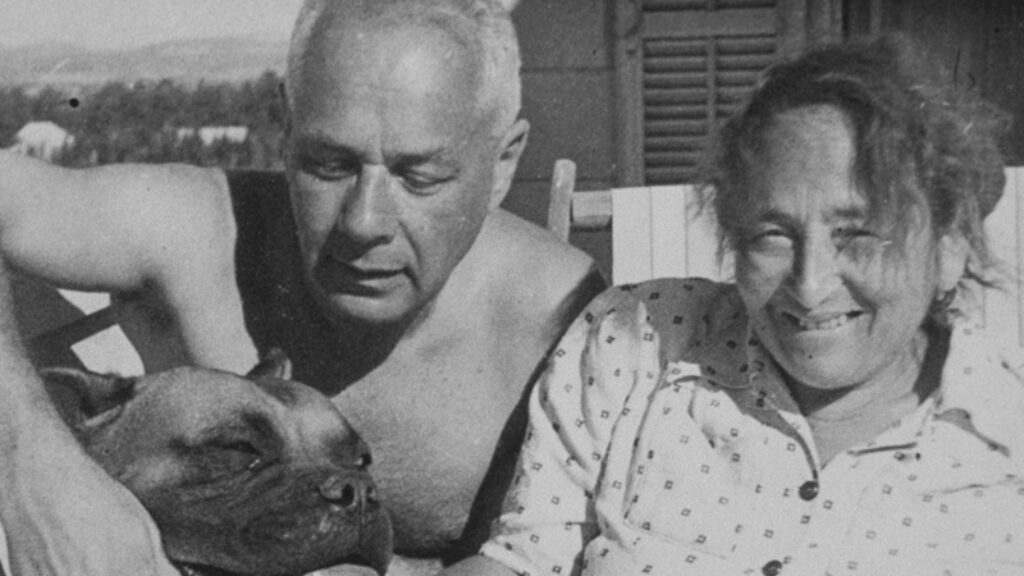
When Canines Were in the Land
Did dogs save the Jewish State?
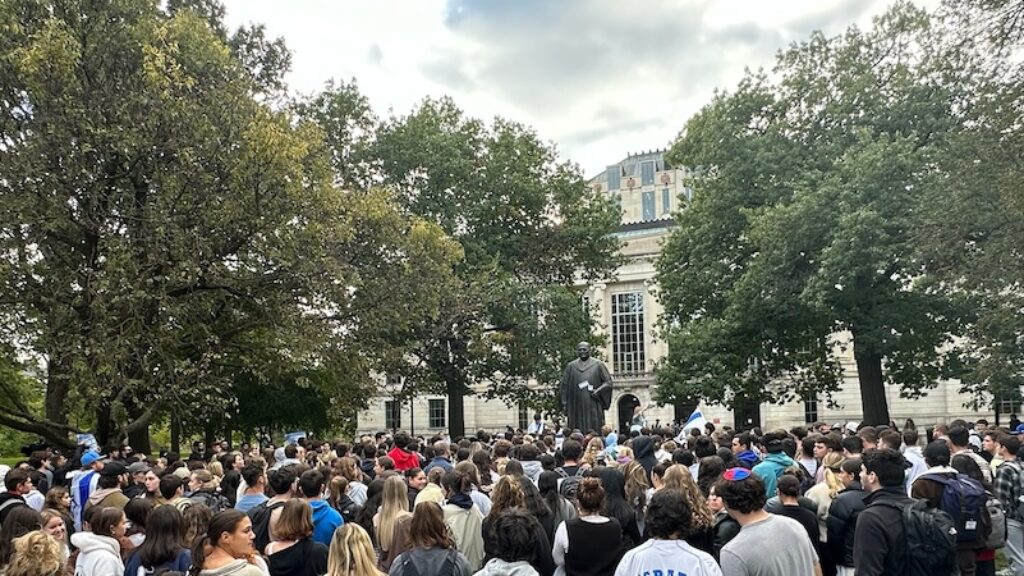
Welcome to the New Campus Normal: A Dispatch from Ohio State
"They found the graffiti in a stairwell. Protect Jewish Lives, only the words were crossed out by a red X." Yoshua G. B. Tolle reports on Jewish campus life amid rising antisemitism.
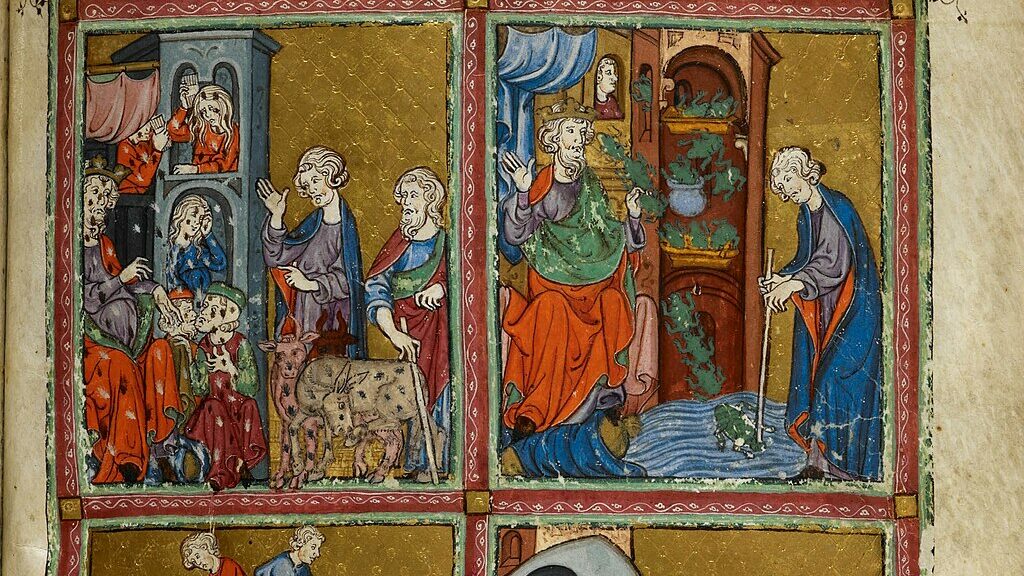
Ten Plagues, Three Acronyms, Seven Opinions
The story behind everyone's favorite Pesach mnemonic.

Memory and Terror
How does a survivor of an infamous hijacking piece together her history?
gwhepner
SHEDDING ABSOLUTELY NO LIGHT ON MOSES
Concentrating on Freud’s most notorious historical
delusions Hayim Yerushalmi stamped with zakhor the most unreliable
messages of this deluded spokesman of an oracle
whose message proved the Doktor was not only mad but certifiable.
Although nonsense always remains nonsense but its scientific study
is science, as Saul Lieberman most famously once said, apotheosis
bestowed on Freud by taking his ideas most seriously will muddy
all scientists who do this and shed absolutely no light upon Moses.
[email protected]